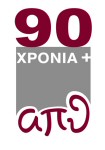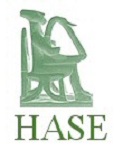International Symposium
Personal Narratives
Laboratory of Narrative Research, School of English
Aristotle University of ThessalonikiMuseum of Byzantine Culture, Thessaloniki
15 April 2016
The Laboratory of Narrative Research at the School of English is organizing a day symposium on “Personal Narratives” on Friday 15 April 2016.
The event will explore the status of the “personal” in an increasingly diasporised, multiply mediated and highly technologised world. Recognising the self as not speaking only but, also crucially, as being “spoken” by the languages of culture and history, it will be concerned to examine the multiple ways in which the “intimate” and the “self” are articulated within contemporary social and cultural systems; it will look at the ways in which life stories (in a variety of media) respond to and are shaped by the unstable division between the public and the private, life and language or citizen and foreigner. We shall be asking to know what the standing of personal narratives is today, their legitimacy, value, power, effects, their affective and political overtones and possibilities. For example, what, and how, do personal stories mean in our “big-brother" lives where the private is not simply commercialised but radically re-defined? What does it mean for a life to depend for its recognition and survival on its "narrativisibility"—as the case of refugees and their harrowing stories demonstrate on a daily basis. Are personal narratives implicated in defining what is human, and hence, valuable today?
The Laboratory of Narrative Research will have the pleasure of welcoming the following international scholars who will address some of these concerns:
- Fotini Apostolou, Aristotle University of Thessaloniki
- Glenn Jordan, University of South Wales
- Asimina Karavanta, National and Kapodistrian University of Athens
- Victor Sage, University of East Anglia
- Chris Weedon, Cardiff University
The organizers would also like to acknowledge the financial support of the university’s Research Committee, the Hellenic Association for the Study of English (HASE) and the valuable contribution of the Museum of Byzantine Culture (Thessaloniki).
Organizing Committee
Sponsors



